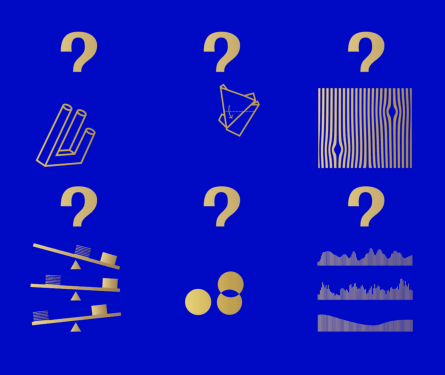Group Exhibition
11.11.2016–12.03.2017: 11th Shanghai Bienniale, Power Station of Art, CN
The phrase “Why Not Ask Again” is a bid, and a query, whose ascending, joyously twisting arc embraces the maneuvers, disputations and stories that contain and encode the turbulences and transports of our time. A listener eavesdropping on deep space walks out of the pages of the recent science fiction novel written in Chinese, The Three Body Problem by Liu Cixin. A wanderer steps out into the deep time of eternity and the straight path of a police bullet in the terminal sequence of the picaresque Bengali film Jukti, Takko aar Gappo (Reason, Debate and a Story) from 1974 by Ritwik Ghatak. They embody the spirit of a mobile triangulation between reason, intuition and the fabulous that the 11th Shanghai Biennale seeks to discover, transmit, and learn from.
The layered perspectives in the miniature painting traditions of South Asia are an operational key for the exhibition, opening it to the braiding of varied temporal rhythms and spatial planes. Sometimes this makes place for extraordinarily discordant eruptions of the ordinary.
Walking the floors of the Power Station of Art will mean undertaking a hundred itineraries through Shanghai, Hanoi, Dakar, Fukushima, Ramallah, Lahore, Guatemala City, Tehran, Dubai, Stockholm, Dhaka, and many more unexpected byways, basements and bus stops of our present.
Four terminals will propose four condensations at the edges of the perceptional, the bodily, the fabulist and the hibernating.
Seven infra-curatorial layers epiphytically folded within the biennale will interrupt, leaven and relay resonant and dissonant lines of enquiry. They gather a constellation of emergent curatorial intelligences from Lagos, Moscow, Delhi, Hangzhou, Bangalore, Istanbul and Paris.
51 Personae will invite others to meet them on their chosen ground. This strand entangles the biennale in the magical and lyrical layers of everyday life of Shanghai. Chen Yun, with Dinghaiqiao Mutual Aid Society, coordinates this extensive project.
Theory Opera will shift the sensory and auditory rhythm of walking, stopping, resting, chatting and looking through an accelerated operatic turn within the exhibition in order to explore the sensation of thought. These are live scenarios at the intersections of works throughout the duration of the biennale. Liu Tian and Yao Mengxi co-ordinate this sequence.
Like a listener scanning deep space jolted by a signal from a distant life form or a talkative wanderer interrupted by a brief aphorism, the 11th Shanghai Biennale asks, again, “How do questions act in the world?”
Chief Curator: Raqs Media Collective
Curatorial Collegiate: Sabih Ahmed, Liu Tian, Chen Yun, and Tess Maunder
Infra-curatorial projects: Ugochukwu-Smooth C. Nzewi, Sabih Ahmed, Didem Yazıcı, Mouna Mekounar, Liu Tian, Srajana Kaikini, and Ivan Isaev
Terminals: Ivana Franke, Marjolijn Dijkman, MouSen+MSG, Regina José Galindo
Artists:
Agan Harahap, Aki Sasamoto, Anawana Haloba, Ayesha Jatoi, Ayodamola Tanimowo Okunseinde & Salome Asega, Azadeh Akhlaghi, Bahar Behbahani, Bianca Baldi, Cell Art Group, Chen Zhe, Christian Thompson, Christine Sun Kim, Desire Machine Collective, Etel Adnan, Fabrice Monteiro, Farzana Ahmed Urmi, Forensic Oceanography, Gagandeep Singh, Georges Adéagbo, Graham Harwood/YoHa, Ha Bik Chuen, Hao Jingban, Heidi Voet, Hu Xiangqian, István Zsíros, Jagdeep Raina, Jefferson Pinder, John Gerrard, Karl Max, Kendell Geers, Khaled Barakeh, Lantian Xie, Lee Mingwei, Lena Zubtsova, Liao Fei, Cantonbon, Lin Ke, Linh Phuong Nguyen, Lisa Tan, Liu Wei, Liu Yujia, Lu Pingyuan, Ma Haijiao, Mao Chenyu, Marina Androsovich, Matts Leiderstam, Moinak Biswas, Müge Yilmaz, Nabuqi, Navjot Altaf, Nicholas Wells, Nikolaus Hirsch/Michel Müller, Olivier de Sagazan, Olu Oguibe, Patty Chang, Peter Piller, Rabin Mondal, Radical Space, Rafiqul Shuvo, Rheim Alkadhi, Robin Meier, Ross Manning, Sammy Baloji, Sener Özmen, Simone Fattal, Sofya Staune, Sohrab Hura, Sun Yuan & Peng Yu, Superflex, Surabhi Sharma &Tejaswini Niranjana, Susanne Kriemann, Takashi Arai, Tao Hui, Taus Makhacheva, Theo Eshetu, Tomás Saraceno, Verina Gfader, Vinu V.V., Vishal K. Dar, Wang Gongxin, Wang Haichuan, Yang Zhenzhong, Yazan Khalili, Yin Yi, Yu Ji, Zheng Bo, Zheng Chongbin, and Zhou Zixi
About Shanghai Biennale
Launched in 1996, the Shanghai Biennale is China’s oldest and most influential international contemporary art biennale, as well as the most important of its kind in Asia. In 2013, the PSA Academic Committee and the Shanghai Biennale Academic Committee were founded to steer the biennale’s academic developments. Since 2014, Shanghai Biennale has adopted a management system under the supervision of a chief curator, making the curatorial team more efficient and the exhibitions more consistent. The 11th Shanghai biennale will take place during Nov. 11, 2016 to Mar. 12, 2017.
About PSA
Established on Oct. 1st, 2012, the Power Station of Art (PSA) is the first state-run contemporary art museum on the Chinese mainland as well as the organizer of the Shanghai Biennale since 2012. Renovated from an old power plant, PSA provides a rich source of inspirations for artists with its simple yet straightforward architectural styles. While becoming more and more international, the Shanghai Biennale never forgets its pursuit and meditation over local issues, and the PSA is also becoming a new power plant that spurs unlimited imaginations.

